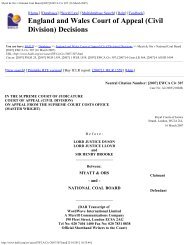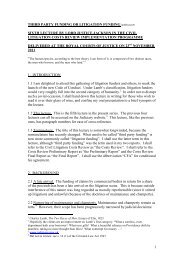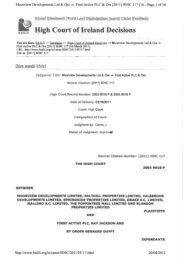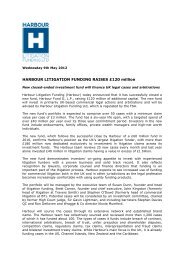[2013] SGHC 135 - Singapore Law Watch
[2013] SGHC 135 - Singapore Law Watch
[2013] SGHC 135 - Singapore Law Watch
Create successful ePaper yourself
Turn your PDF publications into a flip-book with our unique Google optimized e-Paper software.
<strong>Law</strong> Society of <strong>Singapore</strong> v Kurubalan s/o Manickam Rengaraju [<strong>2013</strong>] <strong>SGHC</strong> <strong>135</strong><br />
least elsewhere, has been to permit certain species of champertous agreements<br />
with this objective. For instance, England and parts of Australia have reformed<br />
their laws to permit conditional fee agreements. Indeed (though neither<br />
counsel drew this to our attention) just days before we heard the arguments in<br />
this matter, Lord Neuberger, President of the Supreme Court of the United<br />
Kingdom, had delivered the first Harbour Litigation Funding Annual Lecture<br />
entitled “From Barretry, Maintenance and Champerty to Litigation Funding”,<br />
in which he touched on some of these issues.<br />
30 Mr Rajah pointed to official pronouncements in Parliament as evidence<br />
that <strong>Singapore</strong> too was concerned with the need to preserve access to justice<br />
for those unable to afford legal representation but who, at the same time, were<br />
unable to qualify for legal aid. Mr Rajah further relied on the fact that in the<br />
present case, the Champertous Agreement did not pervert the course of justice<br />
in <strong>Singapore</strong> at all. On the contrary, it was likely that if the Complainant had<br />
not entered into the Champertous Agreement, she would not have been able to<br />
mount a claim in Australia as she could not otherwise have afforded the<br />
expense. The Champertous Agreement was therefore the key factor that<br />
enabled the Complainant actually to recover compensation for her injuries. In<br />
that sense, according to Mr Rajah, the Respondent had in fact enabled the<br />
Complainant to access justice.<br />
31 We were also urged to have regard to the mitigating factors which the<br />
Inquiry Committee had recognised and which we have set out (at [21] above).<br />
32 Mr Rajah accepted that because the Champertous Agreement was akin<br />
to a financial gamble on the likely outcome of the Complainant’s claim and<br />
because of the potential for abuse manifested in the Respondent’s conduct to<br />
which we have referred (at [25(c)] above), a fine alone would not be an<br />
18


![[2013] SGHC 135 - Singapore Law Watch](https://img.yumpu.com/37488807/18/500x640/2013-sghc-135-singapore-law-watch.jpg)
![Neutral Citation Number: [2010] EWHC 941 (QB) - Harbour ...](https://img.yumpu.com/47188668/1/190x245/neutral-citation-number-2010-ewhc-941-qb-harbour-.jpg?quality=85)
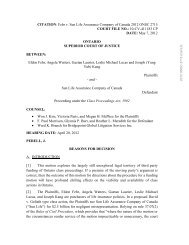
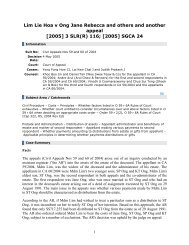
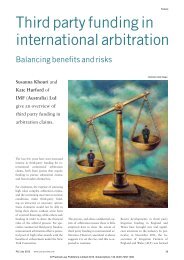
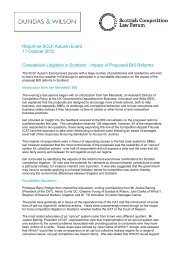
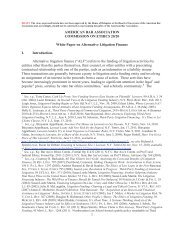

![Hall v Poolman [2009] - Harbour Litigation Funding](https://img.yumpu.com/37488843/1/190x245/hall-v-poolman-2009-harbour-litigation-funding.jpg?quality=85)
